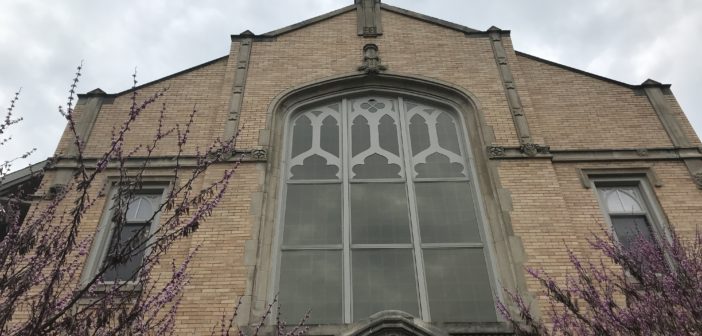In late April, just weeks after the death of Billy Graham, one of the most influential Christian leaders in America, dozens of evangelical leaders from across the nation congregated at Wheaton College, Graham’s alma mater and the home of the famed Billy Graham Center. But the many present weren’t there to honor the life of the Rev. Graham, but instead to ruminate on “the future and the ‘soul’ of evangelicalism.”
For decades, Graham was the soul of the evangelical movement; a moral leader and spiritual counsel to every American president from Harry Truman to Barack Obama. Now, in the wake of his death, evangelicalism finds itself at a crossroads, largely because of its association with the current president, Donald Trump.
In fact, it’s been heavily reported how much evangelicals’, specifically white evangelicals, support in record numbers (over 80 percent) helped President Trump win the White House in 2016. During the election and in the time after, a litany of Trump-centric controversies have fueled a growing disconnect between white evangelicalism and other subsets of the Christian church.
Whether it’s the over a dozen allegations of sexual assault, alleged payment from an affair with a porn star or Trump’s controversial “very fine people” statements after the Charlottesville Rally, evangelical leaders like Jerry Falwell Jr. have been largely absent of criticism, and white evangelical support for the president currently sits at an all-time high.
The lack of a response is particularly frustrating for some other Christians who feel that such incidents should be a simple opportunity to take a stand. “It’s been a crucial time for churches to reinforce Christian values. What is it that we actually say we believe if there is an off-color comment or ideology that’s being presented or persisting,” said Brian Rainville, director of ministry and service at North Central. “(Charlottesville) that was an easy one, that was low-hanging fruit and I was still surprised not a lot of churches did that. How hard is it to speak out against racism or white supremacy?”
Amid the growing strife, many churches and prominent leaders have opted to abandon the “evangelical” moniker altogether, including Boz Tchividjian, the Rev. Graham’s grandson. Although it has much to do with controversies arising from affiliation with President Trump, a substantial amount of dissension in the church has centered around stances on social issues like LGBTQ inclusion.
It is also important to note the political, social and ideological diversity within the church, even when split on racial divides like with black Protestants and Hispanic Catholics.
The Christian church as a whole has gradually shifted on social issues in the past few years, with the majority of white mainline Protestants and Catholics now supporting same-sex marriage. However, evangelical groups who are still largely opposed often speak the loudest on this issue, such as when 150 evangelical leaders grabbed national headlines after signing the “Nashville Statement” in August 2017 to reaffirm their belief of “homosexual immorality,” sparking strong reactions from pro-LGBTQ portions of the church.
“I hate the way Christians are generalized and perceived when it comes to social issues,” said Terra Johnson, ’18, president of Focus at NCC. “Like, it breaks my heart.”
It does seem that issues like these are contributing to the decline of denominations as we know them. “(Over the past 15 years) we see a fracturing of those traditional denominations, and they split along these conservative ideological lines that mimic what is happening in the larger society,” said NCC chaplain Rev. Eric Doolittle. “That is what’s most concerning about it is that it’s this inability to find unity.”
“I see less and less young people affiliating themselves so specifically with a denomination,” said Johnson. The assertion lines up with research from PRRI showing a 6 percent decline in those identifying as white evangelical Protestants over the past decade, while white Catholics and white mainline Protestants have fallen 5 percent over the same period.
Despite the number fleeing traditional labels, recent years have also seen an emergence of people within those groups seeking to redefine or reclaim them instead. Doolittle said, “You’re seeing the rise of voices that would’ve traditionally been in the evangelical movement, but who have a real focus on social justice issues, who are pushing against what is happening within the more political, more politicized, more traditional evangelical movement.”
For some, the future of the Christian church means going back to the basics, letting go of some more stringent, political rules and regulations. “I don’t know if he wants us to hold so tightly to those. I’m not saying there is no room for them, and we should do whatever, but I’m saying, when we hold so tightly, we might compromise the simple,” said Rainville. “Jesus summed it all up: love God and love people.”
“I think a lot of those things are being redefined, and I think that’s where the hope is,” said Doolittle. “How do we keep those essential parts of what it means to be a follower of Christ, and to have those deep-seated faith pieces that inform the rest of our lives; and that’s where the hope is.”

